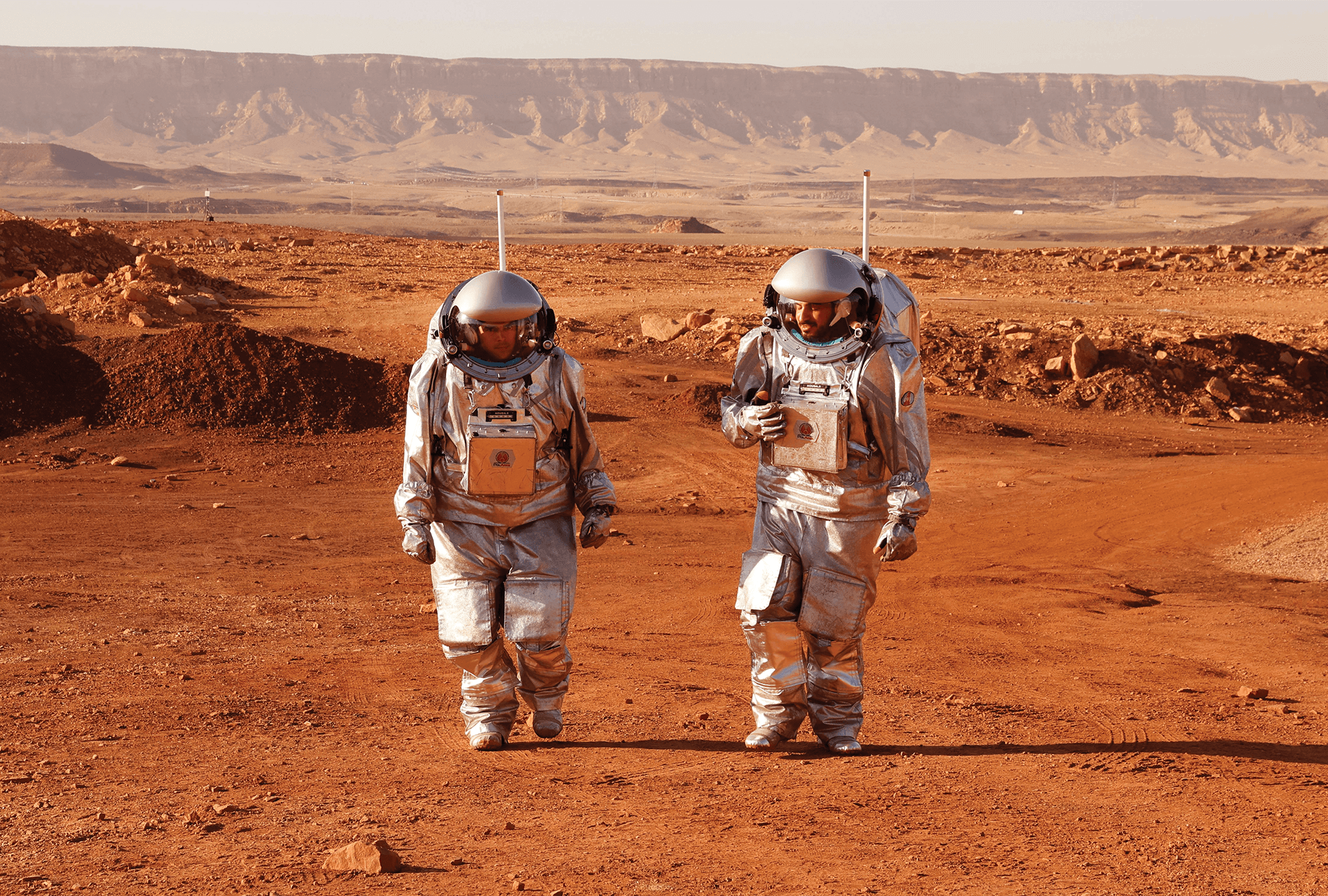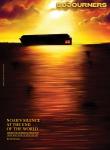Share As A Gift
Share a paywall-free link to this article.
This feature is only available for subscribers.
Start your subscription for as low as $4.95. Already a subscriber?

Astronauts with a team from Europe and Israel train for future missions to Mars at the Ramon Crater in Israel's southern Negev desert. / Jack Guez / Getty Images
David Wilkinson, an astrophysicist and Methodist minister, is principal of St. John’s College and professor of theology and religion at Durham University in England. He spoke with Sojourners’ Jenna Barnett.
“WE NEED TO think about God as the God of the whole universe, rather than just the God of me, the God of our nation, or the God of just this planet Earth. That perspective is deeply within the biblical material. Whether you look in Genesis or the Psalms or at the beginning of John’s gospel or the Letter to the Hebrews, there is this sense of the greatness of God. It’s something that we need to relearn, particularly as we encounter the possibility of life elsewhere. The colonization of space is probably inevitable in the long run.
If there is primitive life deep below the surface of Mars, should we be mining Mars for resources? If we do build cities in space, where are the raw materials going to come from? How do we deal with the reality of both nations and private companies wanting to do those sorts of things in a way that stops us exploiting the natural environment?
Science is given to us as a gift. It brings with it a responsibility to use it wisely for the benefit of all. As a theologian, I need to take seriously that all of this occurs within our world, which is both good and fallen, with institutions and nations that are looking to space for their own economic advantage or military supremacy. The problem is that many of us think, It’s all science fiction. It’s decades in the future. But we need to talk about it now. Christian leaders need to approach science with humility and with confidence and joy, rather than fearfulness or silence."

Got something to say about what you're reading? We value your feedback!